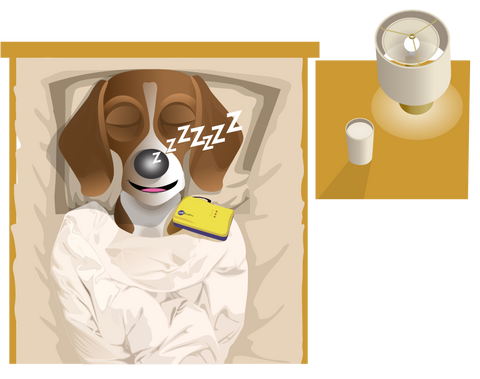I bought this alarm to help my 9 year old granddaughter, who was getting very embarrassed by her bed wetting especially as she’s at the age for sleepovers .Within 2 weeks of using the alarm she was dry at night , and so happy and pleased with herself . It worked well for her .
Our 7 year old son had never had a dry night despite being potty trained normally at 2/3 as he was a deep sleeper and didn’t wake up to needing a wee. The doctor recommended trying a sleep alarm and we first started with another brand that clipped on his pants. It was ok but fiddly particularly in the night and didn’t always pick up the urine.
So after some research on ERIC I switched to eclipse as I wanted something without any clips or wires. I ended up going with the plus model so that I could also have the alarm in my room (wish I had had that from the beginning). The sensor is very easy to use as it doesn’t clip - we put him in two pairs of pants and put the sensor in some tissue in between.
I saw some improvements quite quickly - less urine, less frequent but still many wet nights. It has taken perseverance and it has probably taken about 6 weeks in total to be consistently dry every night - but we are all so pleased with the result.
Our son (9yo) was wetting the bed every night and sleeping through. After the alarm went off on the first night, his bed wetting improved dramatically from then on. Most nights it doesn't go off and if it does, it will only be a small wet patch rather than massive bed wetting. We found that the two pants method with the sensor wrapped in a sheet of toilet paper placed between the pants worked very well. Would highly recommend the product.
Our son (9yo) was wetting the bed every night and sleeping through. After the alarm went off on the first night, his bed wetting improved dramatically from then on. Most nights it doesn't go off and if it does, it will only be a small wet patch rather than massive bed wetting. We found that the two pants method with the sensor wrapped in a sheet of toilet paper placed between the pants worked very well. Would highly recommend the product.
Our son (9yo) was wetting the bed every night and sleeping through. After the alarm went off on the first night, his bed wetting improved dramatically from then on. Most nights it doesn't go off and if it does, it will only be a small wet patch rather than massive bed wetting. We found that the two pants method with the sensor wrapped in a sheet of toilet paper placed between the pants worked very well. Would highly recommend the product.
Sorted everything out in a few weeks.
We tried this bed wetting alarm for my 6-year old daughter who is a deep sleeper. We were sceptical at first, but hopeful. We tried the 2 knicker way for the first day, but the clean up was too much and took too long. We then switched to using pull-ups, which was much better. For the first 2 nights, the alarm woke my daughter up but she couldn’t do a wee as she had already emptied her bladder or couldn’t empty the rest. The next 2 nights, she woke up and then did some wee in the toilet and the amount of wee increased. She then had 5 dry nighte followed by one wet night but was able to do a big wee in the toilet. Then to our surprise my daughter had 14 completely dry nights and is now in knickers at night without any alarm. We cannot believe how well the alarm has worked. Pure relief for us, but it has made our daughter feel good about herself and given her confidence and a further level of independence. Hope it works for your child!
We tried this bed wetting alarm for my 6-year old daughter who is a deep sleeper. We were sceptical at first, but hopeful. We tried the 2 knicker way for the first day, but the clean up was too much and took too long. We then switched to using pull-ups, which was much better. For the first 2 nights, the alarm woke my daughter up but she couldn’t do a wee as she had already emptied her bladder or couldn’t empty the rest. The next 2 nights, she woke up and then did some wee in the toilet and the amount of wee increased. She then had 5 dry nighte followed by one wet night but was able to do a big wee in the toilet. Then to our surprise my daughter had 14 completely dry nights and is now in knickers at night without any alarm. We cannot believe how well the alarm has worked. Pure relief for us, but it has made our daughter feel good about herself and given her confidence and a further level of independence. Hope it works for your child!
We tried this bed wetting alarm for my 6-year old daughter who is a deep sleeper. We were sceptical at first, but hopeful. We tried the 2 knicker way for the first day, but the clean up was too much and took too long. We then switched to using pull-ups, which was much better. For the first 2 nights, the alarm woke my daughter up but she couldn’t do a wee as she had already emptied her bladder or couldn’t empty the rest. The next 2 nights, she woke up and then did some wee in the toilet and the amount of wee increased. She then had 5 dry nighte followed by one wet night but was able to do a big wee in the toilet. Then to our surprise my daughter had 14 completely dry nights and is now in knickers at night without any alarm. We cannot believe how well the alarm has worked. Pure relief for us, but it has made our daughter feel good about herself and given her confidence and a further level of independence. Hope it works for your child!




